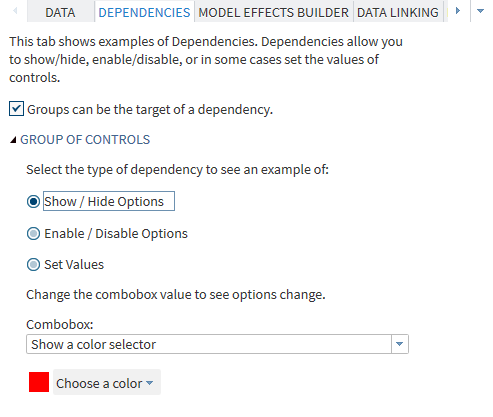About the Dependencies Element
The
Dependencies element
specifies how certain options or roles rely on one another in order
for the task to work properly. For example, a check box can enable
or disable a text box depending on whether the check box is selected.
The Dependencies element is a grouping mechanism
for the individual Dependency tags. There
are no attributes associated with this element.
The
Dependencies element
can have multiple Dependency tags. Each Dependency tag
has a condition attribute that is resolved
to determine the state of the targets. A dependency can have multiple Target elements.
The
Target element
has three required attributes.
|
Attribute
|
Description
|
|---|---|
option |
references the option
that receives the action. Valid values are
OptionItem, Role, OptionChoice,
or Group element.
|
conditionResult |
specifies when to execute
the action. The valid values for this attribute are
true and false.
|
action |
specifies the action
to execute. Here are the valid values:
|
Copyright © SAS Institute Inc. All rights reserved.
